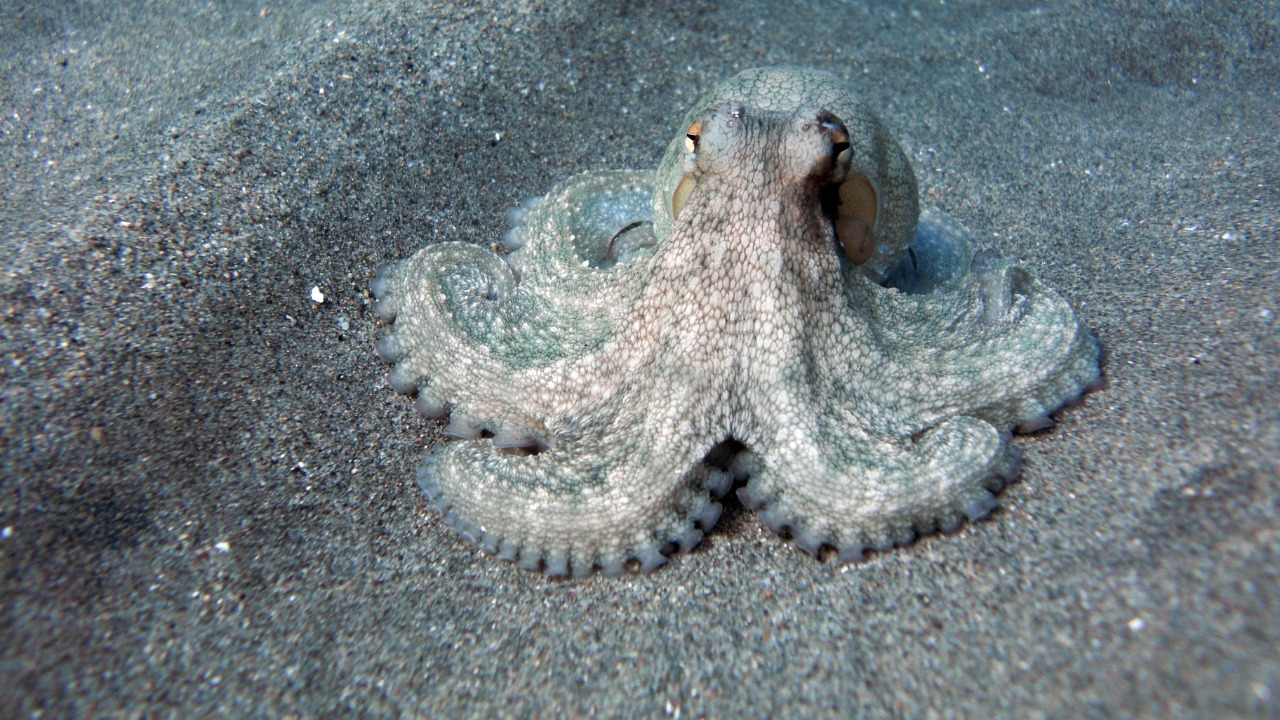
Recent studies on octopuses have revealed intriguing patterns of sleep and color changes, suggesting these creatures might experience something akin to dreaming. Researchers have observed rapid color shifts in two species of octopus during sleep, which appear to mimic active hunting behaviors. These findings, along with further explorations into cephalopod cognition, have led to the hypothesis that octopuses may have complex dreams or even nightmares.
Octopus Sleep Patterns
Researchers at the Federal University of Rio Grande do Norte in Brazil identified two distinct sleep states in octopuses in a 2021 study: quiet sleep and active sleep. During quiet sleep, octopuses exhibit minimal movement, while active sleep is characterized by significant changes in skin texture and color. These states suggest potential brain activity similar to mammalian rest, hinting at a level of cognitive complexity previously unattributed to these creatures [source].
Interestingly, octopuses enter active sleep after about an hour of quiet rest. The day octopus, for instance, first shows pale skin, followed by rapid color shifts. This behavior was captured on video by the researchers, providing compelling evidence for the existence of these sleep states [source]. Furthermore, these patterns occur nocturnally, suggesting evolutionary adaptations for survival in coral reef environments [source].
Color Changes as Behavioral Indicators
The common octopus exhibits vivid skin transformations during active sleep. It shifts from a uniform brown to white, with dark rings appearing on its arms. These changes mimic the camouflage patterns the octopus uses while awake, further supporting the hypothesis that these color shifts reflect internal neural activity [source].
The day octopus displays a sequence of paling, darkening, and rippling textures during active sleep. Researchers interpret these changes as a replay of daytime encounters, suggesting that octopuses may process and consolidate memories during sleep [source]. This theory was further supported by a 2025 article that proposed these changes reflect memory consolidation without external stimuli [source].
Evidence Suggesting Dreaming
The 2021 study proposed that the color changes observed during active sleep in octopuses parallel REM dreaming in humans. This hypothesis is based on the unique structure of the octopus’s distributed brain, which includes neurons in its arms [source]. The study’s lead researcher, Dr. Sidarta Ribeiro, speculated that these shifts might indicate internal simulations of hunting or escaping, akin to dream narratives [source].
Further insights from 2023 suggested the possibility of “octopus nightmares,” where erratic color pulses might signal stress processing during sleep [source]. These findings add another layer of complexity to our understanding of octopus cognition and sleep behavior.
Comparisons to Human Sleep Cycles
The active sleep phase in octopuses, lasting about a minute and occurring every half hour, bears some resemblance to human REM periods [source]. However, there are significant differences in brain structure between humans and octopuses. Despite lacking a centralized neocortex, octopuses appear to exhibit similar restorative sleep functions [source].
There are also shared evolutionary traits in sleep for learning, as suggested by the 2023 analysis of cephalopod cognition. This suggests that sleep may play a crucial role in memory consolidation and learning across a wide range of species [source].
Implications for Cephalopod Intelligence
The sleep color changes observed in octopuses suggest advanced problem-solving capabilities that are replayed subconsciously. This inference, drawn from the 2021 study, adds to the growing body of evidence for high levels of intelligence in cephalopods [source].
Broader questions on consciousness have also been raised, linking sleep behaviors to self-awareness in invertebrates [source]. These findings have significant implications for our understanding of intelligence and consciousness, extending beyond vertebrates to include invertebrates like octopuses.
There are also ethical considerations for octopus research, such as ensuring their welfare during sleep studies. The 2021 study adhered to strict protocols to minimize stress and harm to the octopuses, setting a precedent for future research [source].
Ongoing Research and Future Directions
Since the 2021 study, there have been significant advancements in our understanding of octopus sleep patterns. For instance, a 2023 update highlighted the potential for monitoring neural activity via skin changes in lab settings [source].
Future research could involve the development of EEG-like tools for octopuses to confirm dream states, as proposed in a 2025 article [source]. Cross-species studies could also provide valuable insights into sleep cycle data across cephalopods, further expanding our understanding of these fascinating creatures [source].
More from MorningOverview